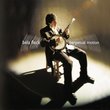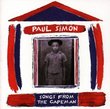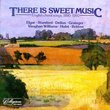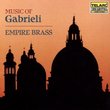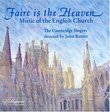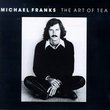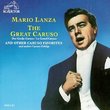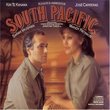| All Artists: Mohammad Reza Shajarian, Kayhan Kalhor Title: Night Silence Desert Members Wishing: 1 Total Copies: 0 Label: Trad. Crossroads Original Release Date: 9/12/2000 Re-Release Date: 10/3/2000 Genres: International Music, New Age, Pop Styles: Middle East, Iran Number of Discs: 1 SwapaCD Credits: 1 UPC: 780702429926 |
Search - Mohammad Reza Shajarian, Kayhan Kalhor :: Night Silence Desert
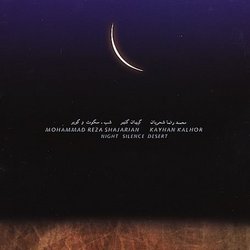 | Mohammad Reza Shajarian, Kayhan Kalhor Night Silence Desert Genres: International Music, New Age, Pop
Kayhan Kalhor is the world's leading exponent of the kamancheh, an upright spike fiddle. Renowned for his work with Ghazal, a group that bridges Indian and Persian music, he applies a similar approach to Iranian folk and c... more » |
Larger Image |
CD DetailsSynopsis
Amazon.com Kayhan Kalhor is the world's leading exponent of the kamancheh, an upright spike fiddle. Renowned for his work with Ghazal, a group that bridges Indian and Persian music, he applies a similar approach to Iranian folk and classical forms on Night Silence Desert. The Radif (Persian classical repertoire) grew from folk forms, but over the centuries the music evolved from its simple rural origins into an elaborately ornamented and rigorously structured style. This album doesn't take the music back to its basics--there's too much refined virtuosity on display. But the musicians infuse their playing with a vigor and crisp cohesion that belies the record's fitful production. First Kalhor convened 11 strummers, drummers, and flute blowers in Tehran in 1994 to lay down the sweeping instrumental passages. Four years later he and vocalist Shajarian finished the record in Vancouver, British Columbia, Canada. The two men exchange intricate call-and-response melodies that radiate impassioned exhilaration. --Bill Meyer Similarly Requested CDs
|
CD ReviewsAwsome!! 06/15/2002 (5 out of 5 stars) "This CD has to rank among the "cream of the crop" of contemporary renditions of taditional Persian music. I own a large selection of them and this is one of my most favorite. The lyrics are based on poems by such luminaries as H.A. Sayeh, Attar, and Baba Taher. The song "Baran" is nostalgic, sad and mesmerising.... I have to stop whatever I'm doing and just sink into this song. Kalhor is a magnificent artist and kamanche player -- i've seen him live in concert. Shadjarian is unrivaled. The dotar by hadj ghorban soleimani is great but doesn't really stand out in this CD -- he and his music are authentic folk music of N. Khorassan (which province in Iran i'm from :) i recommend buying his own CD. The CD insert contains a detailed description of the various instruments, all poems in the original Farsi as well as English translations. All in all a magnificent production and masterly composition from the poems to the vocals to the music. This is truely a gem of craftsmanship and artistary and i'm proud to be able to recomment it. :) This is the CD that moved Simin Behbahani, Iran's preeminent living poetess, to utter "My heart was beating fast with every note of the tar and my throat was choking up." [p.13 in "Kojast Fekre Hakimi?", Ketab Corp, LA, 2003]" BEAUTIFUL AND TRANSPORTING... Larry L. Looney | Austin, Texas USA | 05/16/2004 (5 out of 5 stars) "NIGHT SILENCE DESERT is described in the notes to this CD as a `Khorasan suite' - Khorasan, Iran's largest province, located in the eastern part of the country and home to Masshad, the nation's holiest city, can be roughly translated as `the place where the sun rises'. Kayhan Kalhor has composed the music on this disc based on the classical and folk musics of Khorasan, inspired by his love for the form. The notes that accompany the disc go into great detail concerning the differences and similarities between the classical and folk forms - but rather than writing like a cold theoretician, Kalhor's respect and passion for the music makes the explanation interesting reading.Kalhor is a master performer on the kemancheh (the traditional bowed lute of the region, widely used in Arab and Middle Eastern music) and setar (a 4-stringed plucked lute) - he is joined here by an exceptionally talented ensemble featuring dotar (a 2-stringed lute), barbat (oud), santur (an instrument similar to the Western hammered dulcimer), nay (a reed flute), ghooshmeh (a double-reed flute), cello, and assorted percussion instruments. The ten tracks on the disc flow together wonderfully - sometimes so smoothly that the listener might not notice the track has changed until the subtle shifts in mood and melody become apparent.The words sung in the four vocal sections are, like the music, a mixture of ancient and modern - two are by masters from the 11th and 13th century, and two are by contemporary poets. The ghazal form of lyrical expression is one of the most moving and beautiful to be found in the world - and while the pieces on this disc are not sung in English, there are translations provided. The emotions expressed in the poetry are given glorious flight by the voice of Shajarian, one of the most respected vocalists in Persian music today - listening to his performances here, it's easy to understand why he is so revered.Far from being a `fusion' disc, the music here (at least to my untrained ears) remains true to the essence of Persian classical music. This album is a real treat." Virtuosity, Perceivable Even by Novices David Kleist | 12/07/2002 (5 out of 5 stars) "One need not be steeped in the traditions of Persian/Iranian music to perceive the beauty and mastery of the musicians and music on this CD. From my perspective, when one reaches a certain level of artistic excellent, it is foolhardy to split hairs over whether one is listening to a "good" recording rather than a "great" one. For me, this music--hauntingly evocative, spiritual, and luminous in its beautiful complexity--is of the highest order of artistry. This is a recording one can listen to repeatedly, each time discovering new nuances and patterns missed before. Highly recommended."
|

 Track Listings (10) - Disc #1
Track Listings (10) - Disc #1